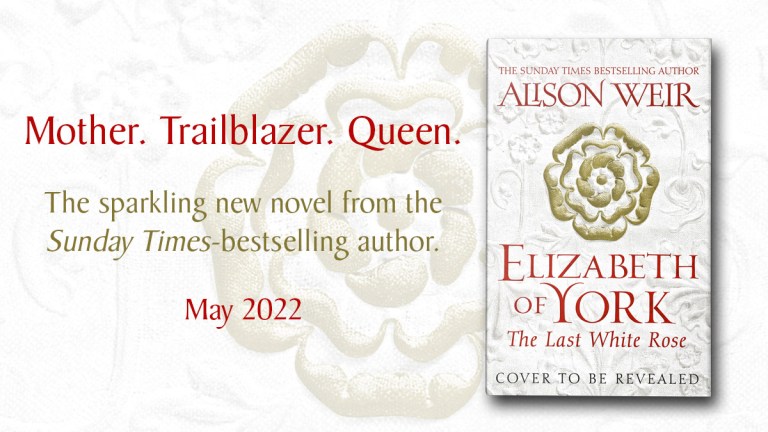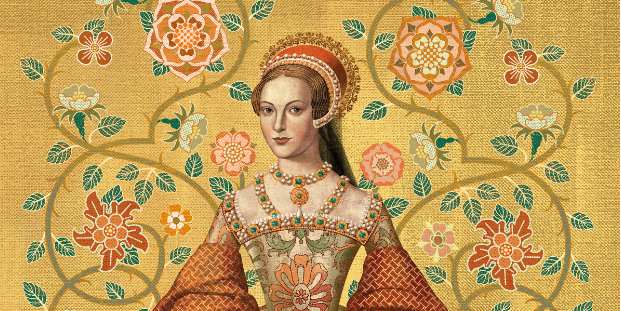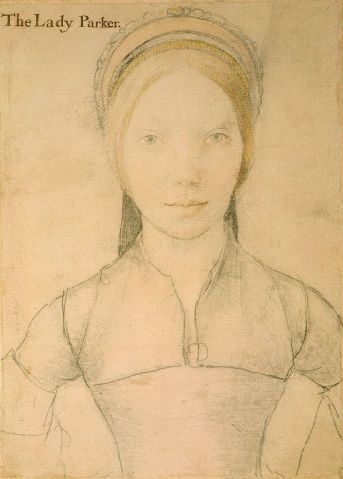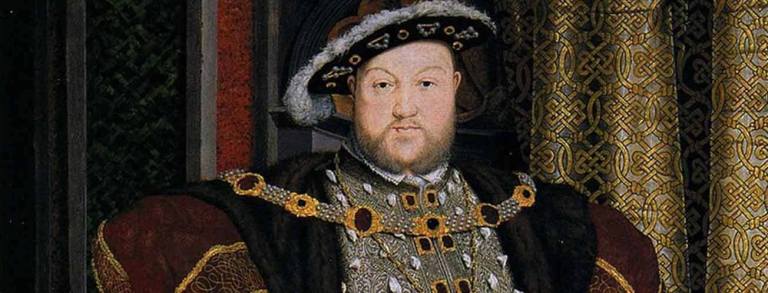THE MOST WOEFUL THING by Alison Weir
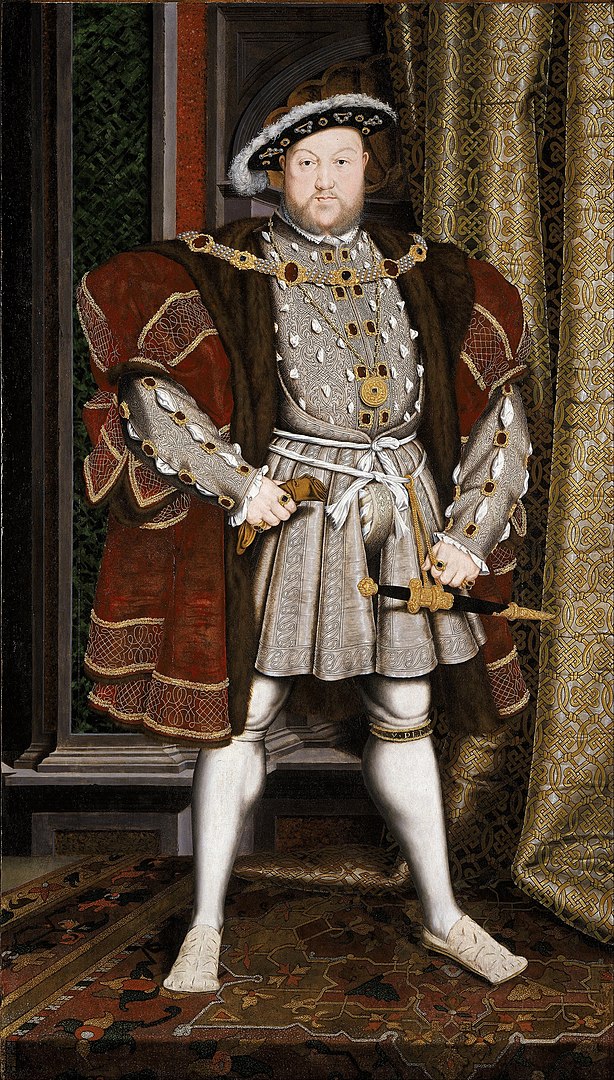
As Katheryn Howard: The Tainted Queen is written wholly from Katheryn’s point of view, the reader never gets to see the reaction of Katheryn’s husband, Henry VIII, to her fall from grace. We see only her emotional journey. What follows is Henry’s.
When, in November 1541, Henry VIII opened a letter that the Archbishop of Canterbury had left in the royal pew of the Chapel Royal at Hampton Court, and read that his cherished Queen was accused of ‘dissolute living before her marriage’, his first reaction was one of astonished disbelief. He told his councillors that ‘he could not believe it to be true’, but that he could not be satisfied until ‘the certainty thereof was known’.
‘You are to travail and labour to find out the bottom of the pot,’ he commanded, ordering a full investigation.
When, a few days later, he was confronted with further evidence of Katheryn’s promiscuity before marriage, he put on a brave face, entertaining the ladies of the court. But, the next day, he left Hampton Court with only a few attendants and went secretly by barge to Whitehall, leaving the Privy Council at Hampton Court interrogating the Queen.
Henry was devastated when he was shown further confessions and depositions laid against Katheryn. Sir William Paget described the ‘inward sorrow the King’s Majesty took when he perceived the information true, as it was the most woeful thing that ever came to our hearts. His heart was so pierced with pensiveness that long it was before his Majesty could speak and utter the sorrow of his heart unto us; and finally, with plenty of tears, which was strange in his courage, he gave vent to his feelings and opened the same.’
After being shown a letter in which Katheryn confessed to misconduct before their marriage and pleaded for mercy, Henry returned to Hampton Court and remained there for some days, secluded from the public gaze and the court gossip, his heart and his pride broken. He did not see Katheryn and agreed that she be taken to a Syon Abbey while further investigations proceeded. At this time, her uncle, the Duke of Norfolk ‘spoke with tears in his eyes of the King’s grief, who loved her much’.
When Henry was shown evidence that Katherine had committed adultery with Thomas Culpeper, a gentleman whom he had greatly favoured, he took the news relatively calmly, although it must have been a dreadful blow. On 22 November, ‘proclamation was made at Hampton Court that [Katheryn] had forfeited her honour, and should be proceeded against by law, and was henceforth to be named no longer queen, but only Katheryn Howard’.
Living with the bitter knowledge of her infidelity was no easy task for the King. To spare him further pain, the Council continued the investigation on its own, while he merely sanctioned further action as necessary.
On 1 December, Dereham and Culpeper were sentenced to death. There was little hope now for Katheryn. With the condemnation of her lovers, her fate had been effectively sealed. Henry had rarely been so miserable. The Imperial ambassador, Chapuys, wrote: ‘The King has wonderfully felt the case of the Queen, his wife, and has certainly shown greater sorrow at her loss than at the faults, loss or divorce of his preceding wives.’ Katheryn’s step-grandmother, the Dowager Duchess of Norfolk, who bore no small responsibility for what had happened, confessed, ‘I am sorry for the King, for he taketh the matter very heavily.’
On 7 December, Marillac reported from Whitehall; ‘This King has changed his love for the Queen into hatred, and taken such grief at being deceived that of late it was thought he had gone mad, for he called for a sword to slay her he had loved so much. Sitting in council, he suddenly called for horses without saying where he would go. Sometimes he will say that that wicked woman had never such delight in her incontinency as she should have torture in her death. He was so out of order that finally he took to tears, regretting his ill luck in meeting such ill-conditioned wives. The ministers have done their best to make him forget his grief, and he is gone twenty-five miles from here with no company but musicians and ministers of pastime, and spent most of his time hunting, seeking to forget his grief’. Henry went to Oatlands, a house full of poignant memories. He had moved on to Woking when, on 10 December, Culpeper and Dereham were executed.
It was the King’s wish that Katheryn should not stand open trial. Instead, an Act of Attainder was to be brought against her when Parliament reassembled in January. On 16 December, Marillac reported: ‘This King has left his Privy Council here [in London], and is, with a small company, in the neighbourhood, seeking in pastimes to forget his grief, until it is time to come to Greenwich, where he spends Christmas.’
The festive season passed gloomily. Henry made no effort to join in the desultory revels staged by his courtiers. Marillac described him as ‘sad and disinclined to feasting and ladies. He seems very old and grey since the mishap of his last Queen, and will not yet hear of taking another, although he is ordinarily in company of ladies, and his ministers beg and urge him to marry again.’ But the wound left by Katheryn’s infidelity was too raw. The Council could only hope that time would heal it. For ‘such an exceptional prince’, all things were possible.
On 29 January, once the Bill of Attainder had passed its first reading, the Privy Council petitioned ‘that his Majesty would, out of regard to his own health, spare himself the pain of giving his assent in person to the Bill, but to allow it to pass by letters patent under his great seal.’ Until then, Marillac reported, ‘the King had shown no alacrity or joy [since] he first heard of his Queen’s misdemeanour; but he has considerably changed, for on the night of that day he gave a grand supper, and invited to it several ladies and gentlemen of his court. There were no less than twenty-six at his table, including the gentlemen, and at another table close by thirty-five.’ Henry drew comment when he flirted with three of the ladies.
The Act of Attainder was passed, and Katheryn was condemned to death. On 10 February, she was taken, not without a struggle, to the Tower to await her fate. But the Act still lacked the King’s signature, without which her execution could not go ahead. On the 11 February, to spare him further distress, Henry ‘sent his royal assent by his great seal, which the Lord Chancellor attached to the Act’. At the top was written the time-honoured phrase: ‘Le Roy le veut’ – ‘The King wills it.’
Two weeks after Katheryn’s head fell, Chapuys reported: ‘The King has been in better spirits since the execution and during the last three days before Lent there has been much feasting. Sunday was given up to the lords of his Council and court; Monday to the men of law, and Tuesday to the ladies. He himself, in the morning, did nothing but go from room to room to order lodgings to be prepared for these ladies, and he made them great and hearty cheer. Unless Parliament prays him to take another wife, he will not, I think, be in a hurry to marry; besides, few, if any, ladies now at court would aspire to such an honour, for a law has just been passed that should any King henceforth wish to marry a subject, the lady will be bound, on pain of death, to declare if any charges of misconduct can be brought against her, and all who know or suspect anything of the kind against her are bound to reveal it within twenty days, on pain of confiscation of goods and imprisonment for life.’
It would be a year before Henry recovered fully from the tragedy of Katheryn Howard and found the woman he wanted to make his sixth wife – a woman who also had skeletons in her closet.


